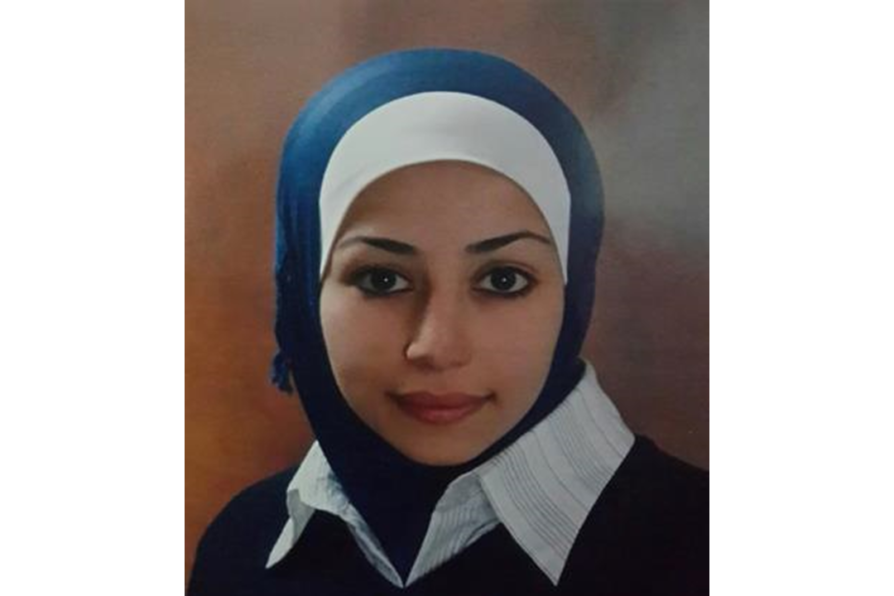Dr Farah Al-Sallami, originally from Iraq, is a Communications Engineer. She studied in Jordan for a Bachelor’s degree in Communications Engineering and a Master’s degree in Wireless Communications Engineering, before becoming a lecturer in Electrical and Electronics Engineering. Following this, Farah decided to continue her studies and move to the UK to undertake a PhD in vehicle-to-vehicle communications using visible light, at Coventry University. During her PhD, Farah learned a lot about optical communications and quantum science and subsequently decided to take the leap into the field of quantum. Farah is currently based at the University of York and works on a project, funded by the Quantum Communications Hub, which aims to develop quantum communications systems that operate on high-altitude platforms. We caught up with Farah to find out more about her journey into quantum, applications of her work, and advice she’d give to others hoping to pursue a career in STEM.
You have a background in engineering, can you tell us a little more about your journey to working in quantum and about the skills from your engineering background that are beneficial to you in quantum?
I am a Communications Engineer which means I develop communication systems. The main goal for communication engineers is to come up with communications systems which have high security and fortunately, this is what quantum communications enable. Therefore, I am very interested in quantum communications that offer a security solution and protect data.
My original research area is classical optical communications and it is useful for me to bring my skills, knowledge and understanding of this to collaborate with quantum scientists. I also bring an understanding of Digital Signal Processing (DSP) which can be used to improve the performance of quantum systems.
I understand that your work focuses on quantum communications from high-altitude platforms. Can you tell us a little bit more about this and what the applications of your work are?
I work on a very big interdisciplinary project. My role within it is to build a classical communication system between the High-Altitude Platform (HAP) and a ground station to support quantum communications. HAPs-based quantum communication will be required to establish a secure communications network around the world. Such a global network will require terrestrial networks, satellites and HAPs to work together.
What would a typical day at work be for you?
Right now, I’m in the phase of designing the system. Soon, I will be moving to performing lab-based experiments to build and test the design and see if it achieves the targets that we set. Alongside this, I’m working with colleagues to implement a DSP algorithm to enhance the performance of a quantum system.
Is there a particular application of quantum technologies that you are particularly excited to see the development of in years to come?
For me, it’s Quantum Key Distribution (QKD). As you know, my expertise is in classical communications and QKD excites me as it can be used to provide guaranteed security for classical communications systems, using the laws of quantum mechanics, which is the ultimate goal.
What are your hopes for the future?
I am looking forward to gaining deeper understanding of quantum communications. I am also looking for further investigation into areas where advances in quantum technologies could be most relevant for communication systems.
Do you think you have faced any barriers as a woman in engineering or quantum?
Yes, I have. Having access to experimental activities was limited for me, particularly because I am a woman. Therefore, one of my goals is to gain practical and experimental skills and show that if I can be an experimentalist, so can other women. I am particularly keen to act as an example of a woman navigating the field and to encourage others to do the same. I am really keen to spread the message that Engineering and Science are not limited to a certain group or gender, everyone can work in these fields and contribute.
Things are changing, in my country and around the world, more women are accessing STEM fields and working in them, however, there is a lot more to be done. That’s why it’s so important to promote women in STEM and to provide examples.
What transferrable skills do you think you have gained throughout your career and what do you think are the most important skills for a career in quantum?
In addition to problem solving skills, presentation skills and communication skills in general are crucial. In the quantum field, we work and collaborate with a multidisciplinary research group of scientists from quantum and classical fields. Therefore, being able to communicate scientific information to an audience who are not familiar with it requires a great deal of skill. Teamwork is also essential to combine the expertise of different fields.
What would you say to young people who are considering pursuing a career in STEM, particularly in quantum?
Regardless of how challenging things are at the beginning, keep going! For me, things were challenging when I first entered the field, and to a certain extent, they are still challenging as I’m still exploring. If I was less motivated, I would probably give up and quit, but I keep my eye focused on my long-term aims and think whatever challenge I face, it’s normal and I will overcome it to reach my goals. I’d advise others to do the same and keep going, even when things seem tough!




